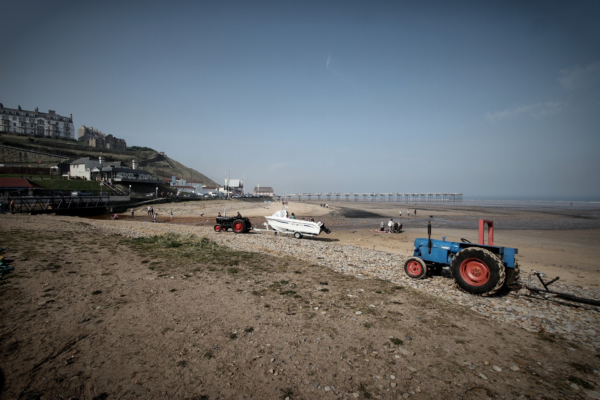Fishers and campaigners have protested against further developments on the River Tees after crustacean deaths off the North East and Yorkshire coasts, the BBC has reported. Meanwhile, MPs have pressed the Government into revealing more details of the inquiry set up into the deaths.
The protesters, who gathered at the Teesworks site, believe dredging has disturbed toxic chemicals and caused the mass deaths of shellfish.
However, the government and Tees Valley Combined Authority reject that claim. Defra previously said a naturally occurring algae was the most likely cause of the die-off. However, it has since established an independent panel of experts to assess all available evidence.
Development work along the River Tees has been continuing while the debate over whether dredging has affected marine life in the area rages.
Next phase of dredging to begin
Teesworks will start the next phase of dredging, where the material will be disposed of at sea, by the end of March next year.
The first period of dredging, where the material was deposited on land, started in September 2022 and concluded on November 9. The second phase will see 900,000m³ of material dredged from the River Tees and disposed of at an approved location at sea.
A South Tees Development Corporation spokesperson said this would be done in accordance with its licence, which states that dredging can be carried out 24 hours a day. It is understood that a large proportion of this material hasn’t been disturbed and predates the industrialisation of the River Tees.
Before the licence was granted, samples of dredge material were tested to ensure it could be disposed of at sea. The dredging is taking place to allow for the construction of the £107m South Bank Quay with building work at the site expected to be completed by June 2023.
“All we have to do is pause”
The government has said an independent panel will reinvestigate by January.
One of the protesters, wildlife campaigner Sally Bunce, said she believed there was a “definite link” between dredging and the die-off.
“To continue with this dredge and to put it out at sea is unthinkable,” she said. “All we have to do is pause it until mid-January when these results are in.”
MPs call for government inquiry details
The North East Fishing Collective (NEFC) has written to fisheries minister Mark Spencer expressing its ‘deep concern’ at the lack of government urgency to address the die-offs, which it suspects are caused by contaminated spoil from dredging in the Tees.
In addition, MPs probing the issue have criticised a government investigation for a “lack of transparency”.
The Environment, Food and Rural Affairs Committee, which held a hearing into the die-offs in October, said it welcomed a pledge by the Department for Food and Rural Affairs (Defra) to set up “an independent group of external experts to analyse the evidence behind the competing theories”.
In a new letter to Environment Secretary Therese Coffey, Conservative committee chairman and MP for Scarborough and Whitby Sir Robert Goodwill said the inquiry should be “open and collaborative” to “rebuild trust and work towards a consensus”.
But, he said, the “exact terms of reference of the review are unknown” and “This lack of transparency and communication is unlikely to build trust with scientists who have been critical of the previous Defra report and the local community.”
He said the review should be “more open, transparent and collaborative” and as a minimum, details of who would be on the panel should be published before the end of the year.
A Defra spokeswoman said the committee’s letter had been received and would be responded to “in due course”.
Further information and Resources:

